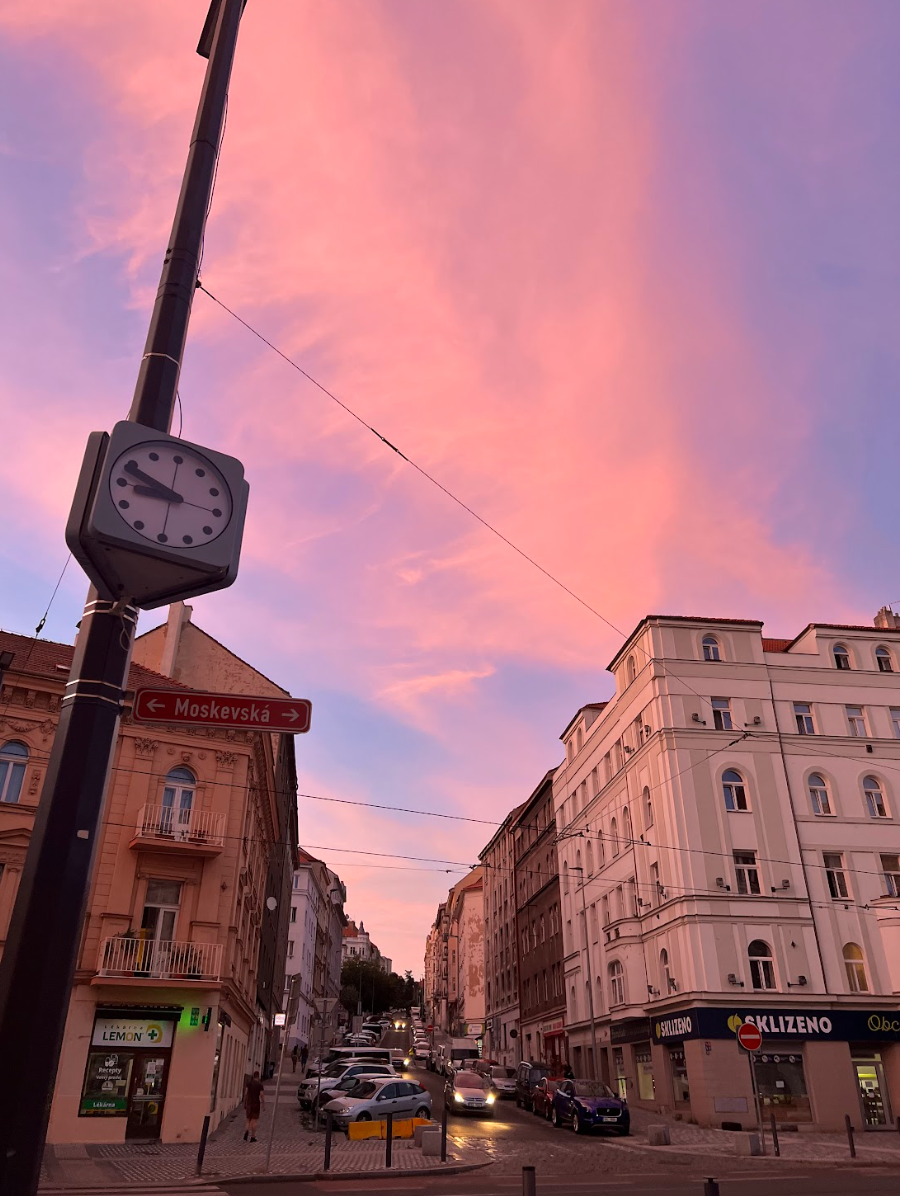
Ester Luna
on translating Cécile Coulon
Like most of Coulon’s poems, “I Don’t Stay Long” does not follow any obvious rhyme scheme or metrical structure, which posed a stimulating challenge.
The stylistic feature I most consistently prioritized throughout my translation was form. In Coulon’s original, line breaks are meticulously planned to emphasize key phrases and images. One notable example is in the verses “elle exige que l’on fasse dans la neige un petit pas / de côté” (Coulon 13). Coulon places “de côté” (“to the side”) to the leftmost side of the page in a line of its own, thus creating a visual rendering of the small movement this verse describes. I wanted to preserve this clever link between form and content, but I initially struggled to reconcile it with the syntax of the whole sentence, which literally translates to “it demands that we take in the snow one small step / to the side.” This word order, while appropriate in French, sounds stilted in English. Hence I chose to shirk syntactic faithfulness, instead translating these verses as “it demands that we take one small step / to the side / in the snow.”Thus, “to the side” is still placed at the leftmost side of the page as a verse of its own, preserving most of the visual structure in Coulon’s original — and, with it, a touching image of humility and resignation.
I also strived to accentuate connections between individual scenes and overarching themes of the poem. For instance, I hesitated between various translations of ‘salir’ in the verse “Je ne reste pas longtemps / pour ne rien salir dans la petite chambre sur la Loire” (“I don’t stay long / so as to taint nothing in that little bedroom on the Loire”). While ‘salir’ directly translates to ‘to dirty’ or ‘to soil’, I ultimately opted for ‘to taint.’ This verb, like the aforementioned two, denotes physical filth — but also holds a connotation of permanent psychological damage which simultaneously contrasts with and highlights Coulon’s discussion of fleeting interactions and romantic attachments throughout the poem.
about the author
Born in 1990, Cécile Coulon is a renowned poet and novelist from the village of Saint Saturnin, situated near the foot of the Auvergne volcanoes in central France. This rocky landscape has been a significant source of inspiration for her oeuvre thus far.
Coulon’s literary career took off when she was in high school –– she published her first novel when she was sixteen. She began receiving recognition for her works in 2012, when she won the Prix Mauvais Genres and the Prix Coup de Foudre des Vendanges littéraires for her novel Le Roi n’a pas sommeil. She has published eight novels, which have earned prestigious awards like the Prix des libraires and the Prix littéraire Le Monde.
Coulon’s first venture into poetry came in 2018 with the collection Les Ronces, followed by Noir Volcan (which contains the poem “Je ne reste pas longtemps”) in 2020 and En l’absence du capitaine in 2022. Coulon’s poems reveal a striking ability to juxtapose the banality of the everyday with fervent reflections on love, grief, and anger. She touches on various facets of romantic relationships –– budding attraction, lovers’ quarrels, nostalgia for past partners –– but grounds these loftier themes with frequent allusions to mundane activities and processes like eating, sleeping, and aging. This delicate, autobiographical lyricism has earned her substantial praise from critics and the general public alike, making her a prominent literary voice of her generation.
about the translator
Ester Luna is a junior at Yale University, where she studies linguistics and comparative literature. She grew up in Washington, D.C. and speaks Italian, French, Mandarin, and Spanish. Her multilingual background sparked her interest in the art of translation as a means of bridging gaps between different cultures and literary traditions. Ester translates from and into French, Italian, and English, with a focus on modern and contemporary prose and poetry. She has recently translated Cécile Coulon’s poetry collection Noir Volcan (Black Volcano) from French into English, as well Alba de Cèspedes’s short story “Incontro con la poesia” (“Encounter With Poetry”) from Italian into English. She is also a managing editor of the Yale Journal of Literary Translation and of L’Amuse-Bouche.

photo by Katherine Rozsypalek
